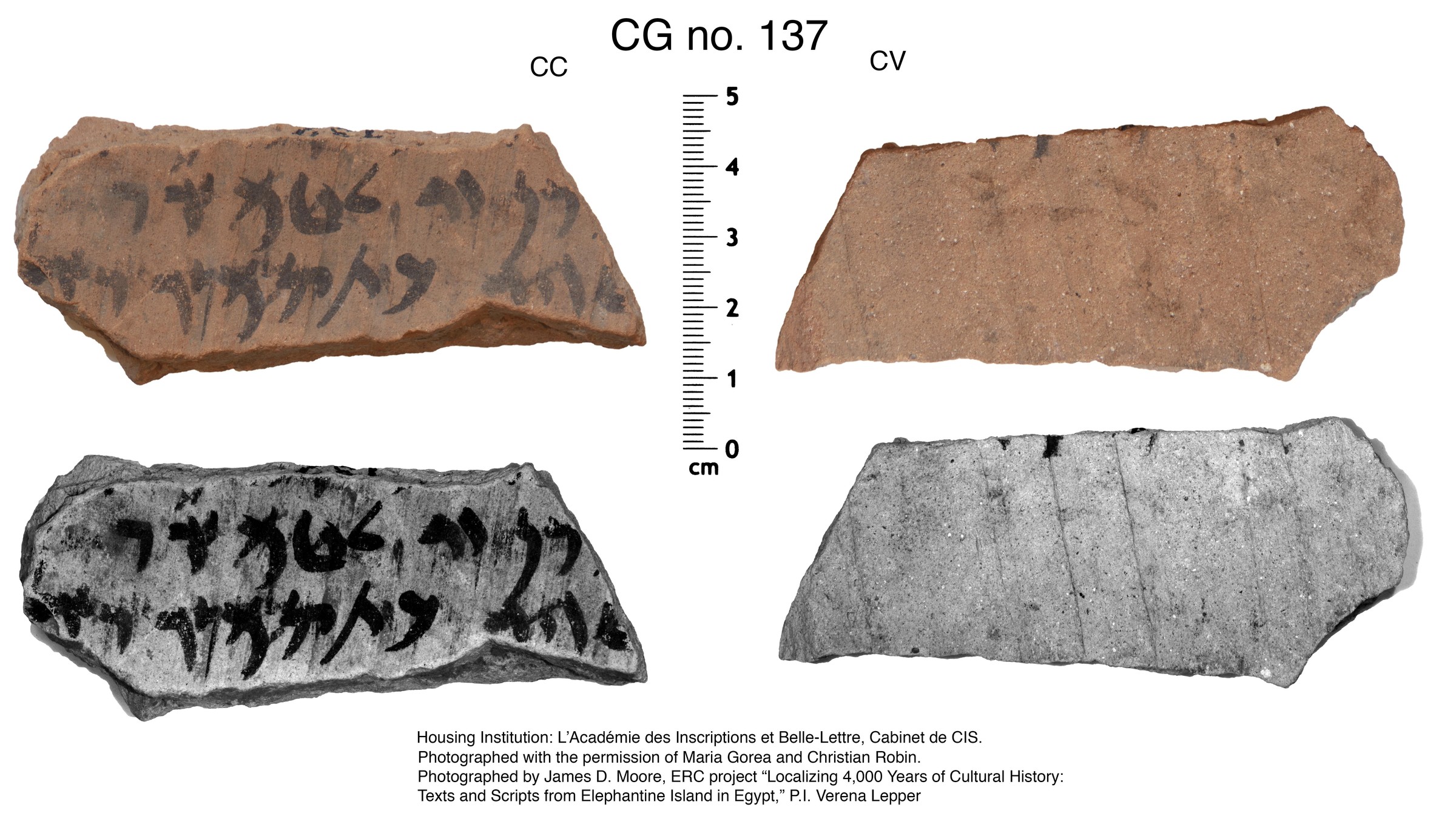Edition
|
1 | | ... |
2 | | ◦רנ זי לטמאו |
3 | |
להי
טהי
בתקמא
בתקמכי
ואל
Translation
|
1 | | [...]... |
2 | | [...]◦RN which ... Interpreting לטמאו is difficult. It may be (1) an
error for לא טמאו "(which) they were not impure"; (2) an error for לטעמ או
"(which is) for/to a decree or"; (3) a noun meaning "(which is) for
impruity". Less likely options include (4) D-stem infinitive "(which is)
making impure." But one expects a ת or ות ending in IA; (5) Perhaps the
writer is thinking in Babylonian and used liṭmaˀû
where Aramaic uses יטמאו. Or (5) לטמ או "(which is) for Ṭam or", but a
proper name ṬM is so far unattested and certainly not Semitic.
|
3 | | [...]{L|Ṭ} him with {the castor oil | your
(f.s.) castor oil} and do not
1 Interpreting לטמאו is difficult. It may be (1) an
error for לא טמאו "(which) they were not impure"; (2) an error for לטעמ או
"(which is) for/to a decree or"; (3) a noun meaning "(which is) for
impruity". Less likely options include (4) D-stem infinitive "(which is)
making impure." But one expects a ת or ות ending in IA; (5) Perhaps the
writer is thinking in Babylonian and used liṭmaˀû
where Aramaic uses יטמאו. Or (5) לטמ או "(which is) for Ṭam or", but a
proper name ṬM is so far unattested and certainly not Semitic.
| |
![]() |
| Paris_AIBL_CIS_CG-137_ |
|
| CC-BY-NC-SA |
|
![]() |
|
